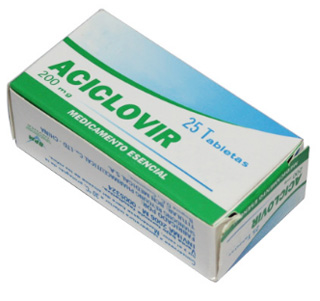Aciclovir Medication Overview
Aciclovir, also known as Acyclovir, is an antiviral medication used primarily to treat outbreaks of herpes simplex virus infections such as cold sores, genital herpes, and shingles. It is also used for the management of varicella zoster virus, which causes chickenpox and herpes zoster. Aciclovir works by interfering with the replication process of the viral DNA, thereby reducing the duration and severity of symptoms. This medication cannot cure herpes but can decrease the symptoms of the infection.
Chemical Composition
Aciclovir is a synthetic nucleoside analogue with the chemical name 2-amino-1,9-dihydro-9-[(2-hydroxyethoxy)methyl]-6H-purin-6-one. It possesses antiviral activity against human herpesviruses and is selectively converted to an active form by virus-infected cells. Its molecular formula is C8H11N5O3.
Dosage Formulations Availability
Aciclovir is available in several dosage forms, including tablets, capsules, suspension, and as a topical cream or ointment for skin application. The medication also comes in an intravenous form for severe viral infections, which must be administered by healthcare professionals.
Pharmacokinetics Details
After oral administration, Aciclovir is only partially absorbed from the gut, leading to a bioavailability of approximately 15 to 30%. It is widely distributed in body fluids and tissues, including the brain, kidney, and liver. The drug readily crosses the placental barrier and is excreted in breast milk. The elimination half-life for aciclovir is about 2 to 3 hours in individuals with normal renal function, and this can be significantly prolonged in patients with renal impairment.
Indications for Use
Aciclovir is indicated for the treatment of various herpes virus infections, including primary and recurrent genital herpes, herpes labialis (cold sores), and acute chickenpox in immunocompetent patients. It is also used for the treatment of herpes zoster and the management of severely immunocompromised patients, such as those with advanced HIV infection.
Administration Instructions
To achieve optimal results and reduce the potential for kidney-related side effects, patients should maintain adequate hydration during treatment with Aciclovir, especially with high doses or intravenous administration. Oral doses should be taken with a full glass of water and can be taken with or without food. Patients instructed to use topical Aciclovir for herpes labialis or genital herpes should apply the cream or ointment to the affected area at the earliest sign of an outbreak, as directed by their physician.
Dosing Recommendations
The standard dosing for Aciclovir depends on the type, severity, and indication for the viral infection being treated. General dosing recommendations for adults often start from 200 mg taken orally five times daily for oral herpes or 800 mg five times daily for shingles. Dosages are typically adjusted based on patient-specific factors, including renal function, with dose reduction required for those with impaired renal function.
Potential Drug Interactions
Aciclovir has the potential to interact with other medications, which may impact its effectiveness or lead to adverse effects. Concurrent use with nephrotoxic agents should be undertaken with caution, as this may increase the risk of renal toxicity. Probenecid, a medication used to treat gout, can increase the concentration of Aciclovir in the blood, possibly necessitating a dosage adjustment.
Storage Conditions
Aciclovir tablets, capsules, and suspension should be stored at controlled room temperature, away from moisture and sunlight. The topical cream and ointment should also be kept at room temperature and out of the reach of children. Intravenous Aciclovir should be stored according to the manufacturer’s guidelines, typically under refrigeration, and used within a specified time frame once diluted.
Disposal and Handling Procedures
Unneeded or expired Aciclovir medications should be disposed of properly to ensure they cannot be consumed by others or harm the environment. Patients should consult with their pharmacist or local waste disposal company to determine the safest disposal method in accordance with local regulations.
Pregnancy and Lactation Considerations
Aciclovir crosses the placental barrier and is found in breast milk. Its use during pregnancy is warranted only if the potential benefit justifies the potential risk to the fetus. Pregnant women and nursing mothers should consult with their healthcare providers to discuss the risks and benefits of using Aciclovir.
Adjustments for Renal Impairment
Patients with impaired renal function require dose adjustment for Aciclovir to avoid drug accumulation and potential toxicity. Renal function should be assessed before initiating therapy and monitored during treatment, with dosage adjustments made based on the level of renal impairment.
Monitoring Parameters
When using Aciclovir, especially intravenous administration or high doses, monitoring of renal function and hydration status is crucial. Blood urea nitrogen (BUN) and serum creatinine levels should be monitored to detect any renal impairment early. Clinicians should also monitor the patient for signs of neurologic reactions, particularly in patients with renal impairment or when administering higher doses.
Counseling Points for Patients
Patient counseling on the use of Aciclovir should emphasize the importance of adhering to the prescribed dosage regimen and the timely initiation of treatment following the onset of symptoms. Patients should be made aware that Aciclovir does not prevent the transmission of herpes viruses to others and does not cure the infections. Safe sex practices and personal hygiene measures should be discussed to help prevent the spread of the virus.




Reviews
There are no reviews yet.